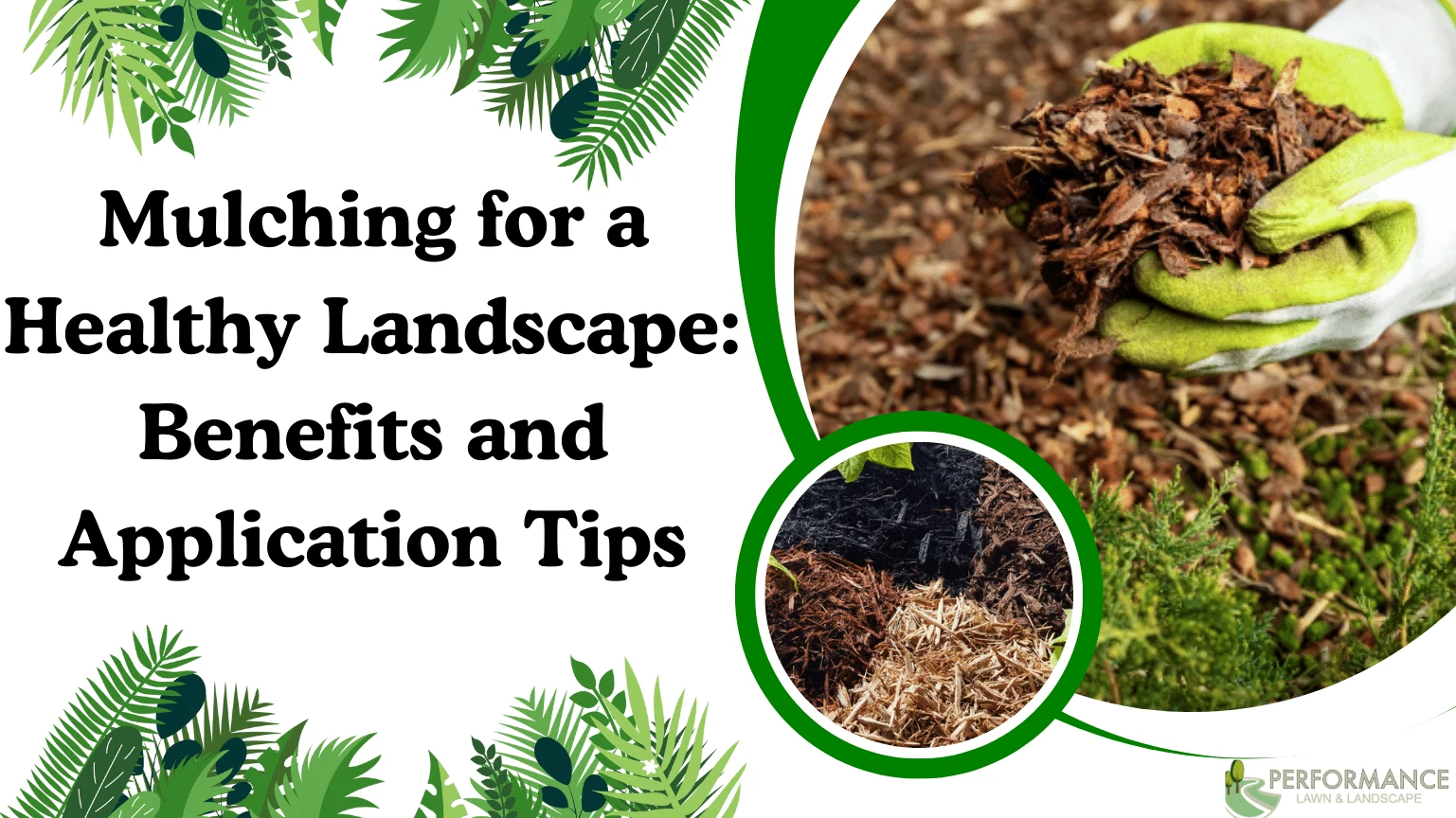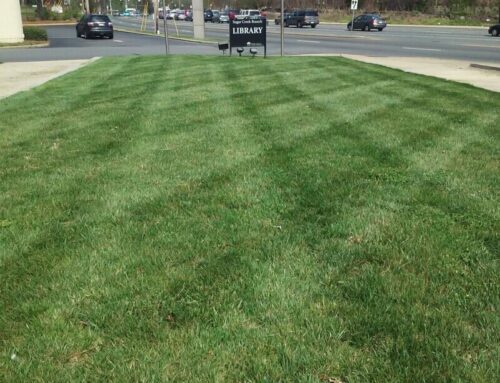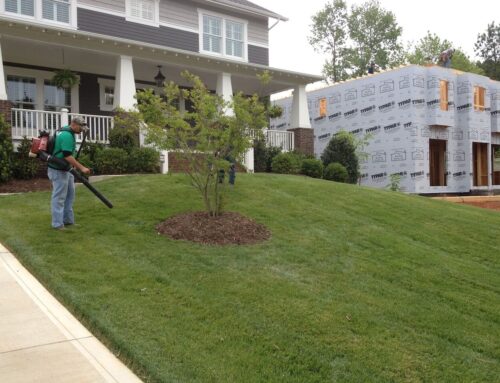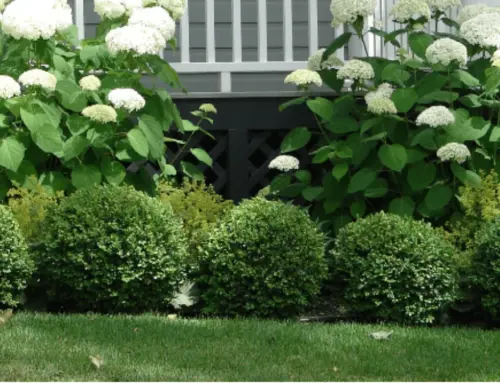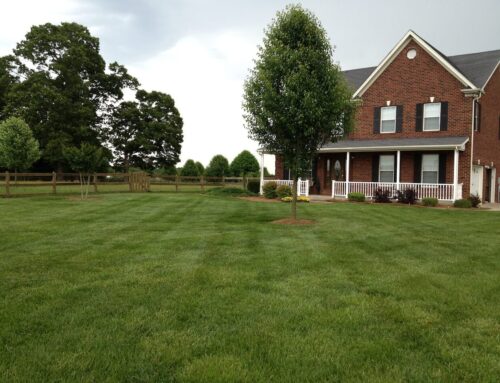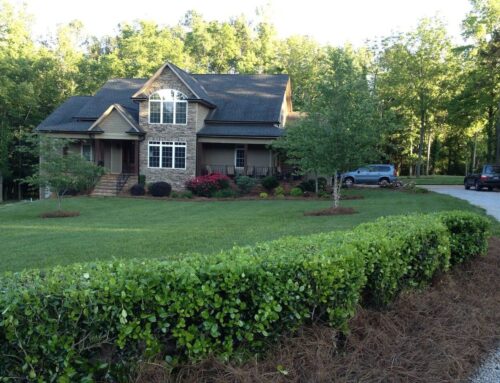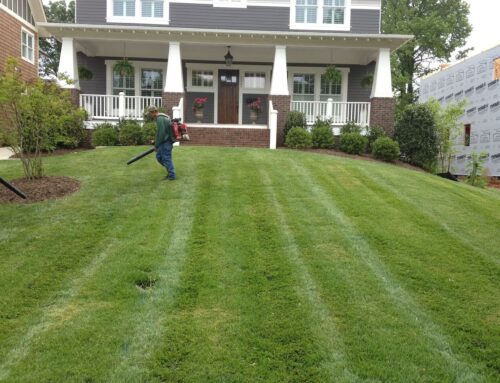Mulching isn’t just about aesthetics; it’s a powerhouse for nurturing your outdoor haven. Wondering what mulch can do for you? Discover its myriad benefits and savvy application tips here. From retaining moisture to suppressing weeds, mulch is nature’s secret weapon for a thriving garden.
Join us as we delve into the art and science of mulching, unlocking the secrets to a luscious, vibrant landscape. Whether you’re a seasoned gardener or just dipping your toes in the soil, mulching holds the key to your garden’s success.
What are the benefits of mulching for maintaining a healthy landscape, and how does it contribute to plant growth and soil health?
Mulching offers several benefits for maintaining a healthy landscape and is crucial in promoting plant growth and soil health. Some key benefits of mulching include:
- Moisture Retention: Mulch acts as a protective barrier, reducing moisture evaporation from the soil surface. This helps to maintain consistent soil moisture levels, reducing the need for frequent watering and ensuring that plants have access to adequate hydration, especially during hot and dry periods.
- Weed Suppression: A mulch layer helps smother weed seeds and inhibit weed growth by blocking sunlight from reaching the soil surface. This reduces competition for water, nutrients, and space, allowing desirable plants to thrive without the encroachment of weeds.
- Temperature Regulation: Mulch acts as insulation, moderating soil temperatures by keeping the soil cooler and warmer in cold weather. This stabilizes plant conditions, promoting optimal growth and reducing stress on plants during temperature fluctuations.
- Soil Erosion Prevention: Mulch helps reduce soil erosion by minimizing raindrop impact and slowing down the flow of water over the ground. This protects the soil from erosion and nutrient loss, preserving its structure and fertility over time.
- Nutrient Cycling: Organic mulches such as compost, shredded leaves and grass clippings decay, replenishing the soil with nutrients and organic matter. Mulch breaks down and releases nutrients into the soil, giving a constant supply of plant food and improving soil structure and fertility.
- Improved Soil Health: Mulch contributes to soil health by promoting beneficial microbial activity, earthworm activity, and soil biodiversity. This enhances soil structure, aeration and drainage promote plant root growth and thrive.
Mulching is essential for maintaining a healthy landscape, providing numerous benefits for plant growth, soil health, and overall garden vitality. Incorporating mulch into your landscaping routine can conserve moisture, suppress weeds, regulate soil temperature, prevent erosion, and improve soil fertility, creating an environment where plants can flourish.
How do different types of mulch vary in terms of effectiveness and suitability for specific landscaping needs?
Different mulch types vary in effectiveness and suitability for specific landscaping needs based on factors such as material composition, texture, durability, and aesthetic appeal. Here’s a breakdown of common types of mulch and their characteristics:
Organic Mulch:
- Bark Mulch: Made from shredded or chipped bark, bark mulch is prized for its natural appearance, ability to suppress weeds, and moisture-retention ability. It’s available in various sizes and colors, offering versatility in landscaping design.
- Wood Chips: Wood chips are more significant pieces of wood that break down slowly, providing long-lasting weed suppression and moisture retention. They’re ideal for pathways, play areas, and naturalistic landscapes.
- Shredded Leaves: Shredded leaves are rich in organic stuff enriching the soil as they decompose. They’re lightweight, easy to apply, and ideal for vegetable gardens and flower beds.
- Compost: Compost adds nutrients to the soil as it breaks down, making it beneficial for plant growth. It’s suitable for vegetable gardens, flower beds, and areas where soil improvement is needed.
Inorganic Mulch:
- Gravel or Stone: Gravel or stone mulch offers excellent drainage and weed suppression, making it ideal for dry conditions or bad soil drainage. It’s available in various sizes and colors to complement different landscape designs.
- Rubber Mulch: Rubber mulch comes from recycled tires, durable, long-lasting, and provides excellent weed suppression. It’s often used in playgrounds, pathways, and areas where safety and durability are paramount.
Living Mulch:
- Groundcover Plants: Groundcover plants such as clover, creeping thyme, or vinca provide living mulch, offering weed suppression, erosion control, and aesthetic appeal. They’re suitable for slopes, borders, and areas where low-maintenance landscaping is desired.
Miscellaneous Mulch:
- Straw: Straw mulch is lightweight and inexpensive. It provides temporary weed suppression and moisture retention. It’s commonly used in vegetable gardens and newly seeded lawns.
- Newspaper or Cardboard: Newspaper or cardboard can be used as a temporary mulch layer to smother weeds and retain moisture. They’re often placed beneath other mulch types to enhance effectiveness.
When choosing mulch for specific landscaping needs, consider climate, soil type, plant preferences, maintenance requirements, and aesthetic considerations. Experimenting with different mulch types and combinations can help you find the best solution for your landscape’s unique requirements, ensuring optimal effectiveness and long-term success.
Are there specific considerations homeowners should make when applying mulch to their landscape, such as timing, thickness, and placement?
Yes, homeowners should consider several factors when applying mulch to their landscape to ensure optimal effectiveness and plant health. Some important considerations include:
- Timing: The best time to apply mulch is in late spring or early summer after the soil has warmed up and plants have started actively growing. This allows the mulch to help retain soil moisture during the hotter months and suppress weed growth when weeds are most likely to germinate. Mulching in fall is also beneficial to insulate soil and protect plant roots during winter.
- Thickness: For most landscapes, apply mulch to a 2 to 4-inch depth. Too little mulch may not reduce weeds or moisture retention, while too much mulch can suffocate plant roots, retain excess moisture, and promote fungal diseases. Avoid piling mulch directly against plant stems or tree trunks to prevent rot and pest issues.
- Placement: Mulch should be evenly distributed around plants and garden beds, extending to the drip line of trees and shrubs. Leave a small gap between mulch and plant stems to allow air circulation and prevent moisture buildup. When mulching around trees, create a donut-shaped ring rather than a volcano shape to avoid trapping moisture against the trunk.
- Type of Mulch: Choose mulch appropriate for your landscaping needs, considering factors such as material composition, texture, color, and durability. Slowly decomposing organic mulches enhance soil nutrients, while inorganic mulches provide long-lasting weed suppression and moisture retention.
- Weed Control: Before applying mulch, remove existing weeds and use pre-emergent herbicide to prevent weeds seeds from germinating. Then, lay down a layer of newspaper or cardboard beneath the mulch to further suppress weed growth.
- Soil Preparation: Ensure the soil is adequately moist before applying mulch to maximize its effectiveness in retaining moisture. Mulching over dry soil may prevent water from penetrating the soil surface and reaching plant roots.
By considering these factors when applying mulch to their landscape, homeowners can ensure that their plants receive maximum benefits from mulching while minimizing potential issues such as weed growth, moisture retention, and plant stress.
Can professional landscapers guide and assist with mulching to ensure optimal results for a healthy and vibrant landscape?
Professional landscapers can guide and assist homeowners with mulching to ensure optimal results for a healthy and vibrant landscape. Here’s how professional landscapers can help:
- Expertise and Advice: Professional landscapers have extensive knowledge and experience in mulching techniques, including selecting the appropriate type of mulch, determining the right amount to apply, and ensuring proper placement around plants. Expert guidance tailored to your needs is available to the landscape’s specific needs, considering factors such as soil type, plant species, climate, and maintenance requirements.
- +Customized Solutions: Professional landscapers can assess your landscape and develop a personalized mulching plan based on your goals, preferences, and budget. Whether you want to improve soil health, suppress weeds, conserve moisture, or enhance aesthetic appeal, they can recommend the most suitable mulch types and application methods to achieve your desired outcomes.
- Efficient Application: Professional landscapers have the equipment, tools, and workforce to apply mulch to your landscape efficiently, ensuring thorough coverage and uniform distribution. They can handle the entire mulching process from start to finish, including site preparation, mulch delivery, spreading, and clean up, saving you time and effort.
- Quality Materials: Professional landscapers can access high-quality mulch materials from reputable suppliers. They can recommend premium mulch products free from contaminants, weed seeds, and harmful chemicals, ensuring the health and safety. of their plants and soil.
- Maintenance Services: In addition to mulch application, professional landscapers can provide ongoing maintenance services to keep your landscape looking its best year-round. These may include mulch replenishment, weed control, soil amendment, plant pruning, and general landscape upkeep to ensure your outdoor space’s long-term health and vitality.
Professional landscapers can offer invaluable assistance and expertise in mulching, helping homeowners achieve optimal results for a healthy, vibrant, and visually appealing landscape. Whether you’re mulching a small garden bed or a sprawling estate, partnering with a professional landscaper can streamline the process and ensure your landscape thrives for years.
Boost Landscape Health: Master Mulching Now
Elevate the health and beauty of your landscape with expert mulching services from Performance Lawn and Landscapes. Our team specializes in mastering mulching techniques tailored to your specific landscape needs. With our guidance, your plants will thrive as we provide the perfect balance of moisture retention, weed suppression, and soil enrichment.
Let us transform your outdoor space into a flourishing oasis that enhances curb appeal and fosters healthy plant growth—Trust Performance Lawn and Landscapes to master mulching and boost the vitality of your landscape today.

